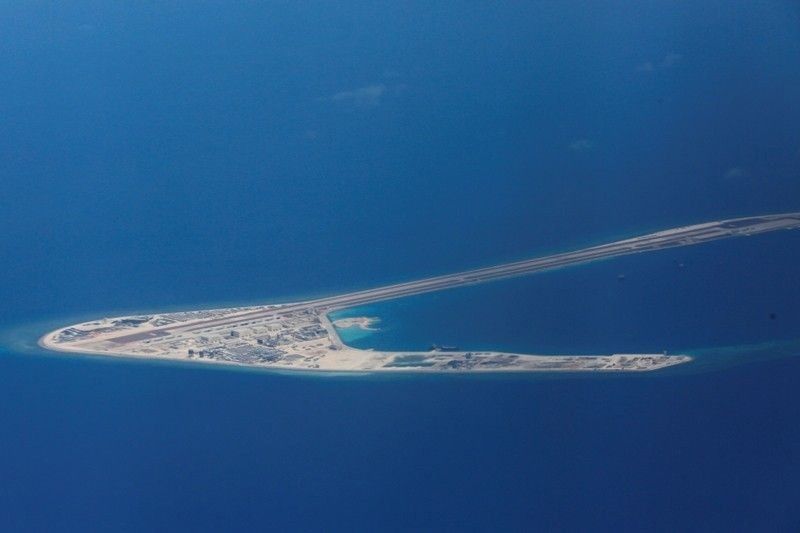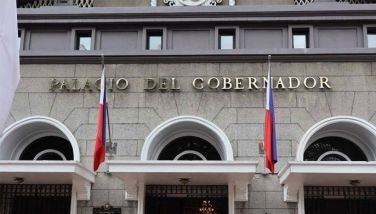‘West Philippine Sea oil exploration OK, but not with China’

MANILA, Philippines — President Duterte’s move to lift the moratorium on oil exploration in the West Philippine Sea (WPS) would be beneficial for the country, but the government must bar China from any joint venture to exploit mineral resources in the area until Beijing abides by the 2016 ruling of the Permanent Court of Arbitration, senators said yesterday.
Sen. Risa Hontiveros said she was cautiously optimistic about the President’s move but asserted that joint oil exploration should only begin after China acknowledges and abides by the ruling, which recognizes the Philippines’ exclusive sovereign rights over its exclusive economic zone (EEZ) in the WPS.
“Until China recognizes our victory in The Hague ruling, no negotiation on joint exploration would be productive. We must continue to assert that only the Philippines can conduct exploration in our EEZ. The requirements of the Constitution should be met and our sovereign ownership over the resources in our continental shelf must be recognized,” Hontiveros said in a statement.
She noted that the WPS is rich in oil and gas reserves that this is why China is snatching it from the country. She pointed out that the WPS, known to be the “second Persian Gulf,” contains as much as 130 billion barrels of oil, which experts say follows Saudi Arabia in terms of wealth of oil reserves.
Retired Senior Associate Justice Antonio Carpio also said in his e-book “South China Sea Dispute” that the WPS may be rich in methanol, a biofuel that could “fuel China’s economy for 130 years.”
“We must not easily grant China access to our seas, not only because of her rejection of the 2016 ruling but also because we need to safeguard money and resources that can get us through this pandemic,” Hontiveros said.
Energy Secretary Alfonso Cusi said the lifting was done “in good faith” with consideration to the negotiations between the Philippines and China.
But Hontiveros stressed that the government should maintain that the Philippines, not China, has exclusive sovereign rights over that part of the South China Sea.
“Any admissions and concessions made during negotiations with China would weaken our position in the WPS. We’ve already won legally and diplomatically, and if the government itself cannot stand by this victory, China will only use this against us,” she said.
Sen. Sherwin Gatchalian, who chairs the Senate committee on energy, also welcomed the lifting of the moratorium even as he conceded that any joint exploration must also seriously consider the geopolitical situation, particularly the country’s territorial dispute with China.
Gatchalian sees the lifting as the continuation of what he thought as Duterte’s “historic” speech before the United Nations General Assembly last September where he vowed not to abandon the arbitral ruling.
“This (lifting of the moratorium) is a continuation because of his (Duterte) pronouncements, this is the action we’re waiting for because this means private proponents (can start joint exploration),” the senator told radio station dwIZ.
He said the lifting of the moratorium should also be seen in light of projections that the country’s natural gas supply from the Malampaya fields is expected to dwindle in five years.
Located approximately 50 kilometers northwest of Palawan, Malampaya is the country’s main domestic source of energy fueling five power plants as it accounts for 20.08 percent of power generation in the entire country and 29.3 percent of power generation in Luzon.
It has also provided the government a revenue of P261,681,610,752.59 from January 2002 to Dec. 31, 2019 which is a crucial source of funding for various energy resource development programs and initiatives.
Gatchalian earlier called for an inquiry on the issues surrounding the looming expiration of Service Contract (SC) 38 or the Malampaya Deep Water Gas-To-Power Project given its critical role in the country’s energy security.
Along with Senate President Vicente Sotto III and Sen. Panfilo Lacson, he filed Senate Resolution 533 citing the need for Congress to be apprised of the government’s plans for SC 38, in the wake of the reported depleting supply of natural gas that is being drawn from the Malampaya gas field.
The surrounding areas of Malampaya is said to be vastly rich in oil and natural gas and exploring it at this point could prepare for oil production by the time its gas supply is depleted, the senator said.
Gatchalian also wants to look into the compliance of the government and the consortium with Presidential Decree No. 87 or the Oil Exploration and Development Act of 1972, and the impending sale of the 45 percent stake of Shell Exploration B.V., which is also crucial since SPEX is the operator of the platform.
Aside from the 10 percent stake of the Philippine National Oil Corp.-Exploration in Malampaya, the 45 percent stake, previously held by Chevron, is now under Udenna Corp.’s subsidiary, UC Malampaya Philippines.
“We’re looking at the larger picture, which is the energy security of the country. So we have to make sure that whoever takes over that portion of Shell should have the technical capability. They should be able to demonstrate that they can operate this rig competently with technical expertise and in the future, if ever that area has potential, they should be able to demonstrate so they can explore and develop that area,” Gatchalian said.
- Latest
- Trending






























